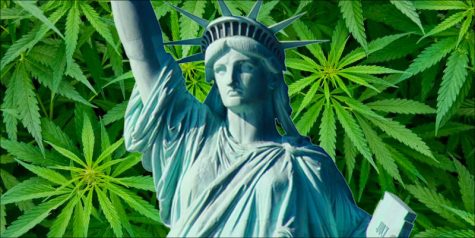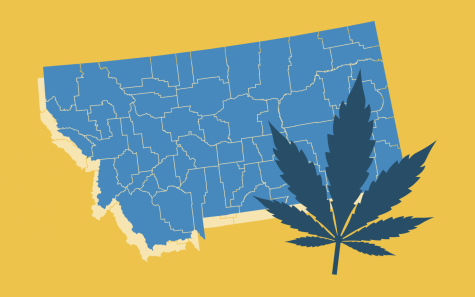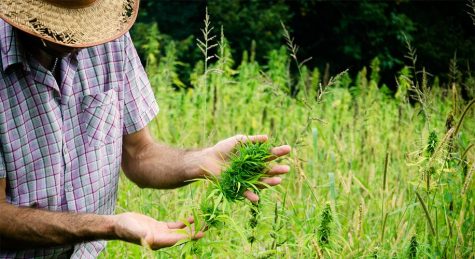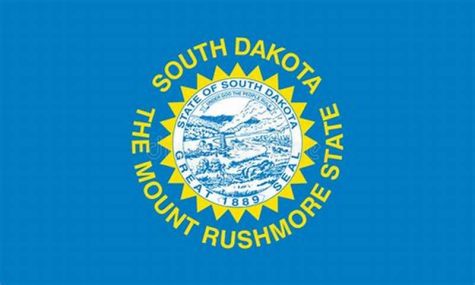Biggest U.S. tribal nation is preparing recommendations for hemp and cannabis industry
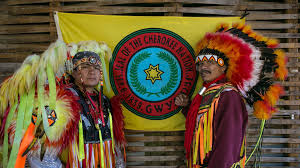
A working group cannabis study is in the pipeline for the Cherokee Nation; a group of southeastern woodland Indians best known for being farming people. The focal point of the study will be to understand precisely how the tribe may participate in the nascent – yet flourishing – hemp and cannabis industries.
According to data published in The U.S. Cannabis Report 2019 Industry Outlook, the U.S. cannabis industry will be worth $30 billion by 2025. As a highly lucrative industry with plenty of profit potential for participating states and territories, the Cherokee Nation is not wasting anymore time in figuring out how it could play a role in legal weed.
A committee comprised of seven members was chosen by Cherokee Nation Principal Chief Chuck Hoskin Jr. on Wednesday, January 22. The committee must now establish a set of recommendations no later than May 31.
Cannabis in tribal nations: About the Cherokee Nation
The indigenous Cherokee people originally congregated in the outskirts of western South Carolina, southwestern North Carolina, southeastern Tennessee, northeastern Alabama and northeastern Georgia; dating back before the 18th century. Following the 1838 discovery of gold in the tribe’s homelands, the indigenous people were forced out of their territory. Eventually, they settled in the Oklahoman city of Tahlequah; formerly considered to be Indian Territory.
Since this Native American tribe is the largest of all tribal territories in the U.S., Hoskin’s announcement of cannabis in tribal nations is creating a ripple of excitement across other territories. A total of 500 nations are scattered across the state of Oklahoma, but a mere 36 are legally allowed to cultivate and sell cannabis.
“I believe there are opportunities for the Cherokee Nation, our businesses, and our citizens to benefit from this emerging industry,” Hoskin expressed. “But, we need to move forward carefully and responsibly and in absolute strict adherence to the law in order to ensure success and sustainability.”
The Cherokee Nation intends on developing a set of recommendations highlighting tribal opportunities for cannabis cultivation, processing and sale. Moreover, Cherokee tribe members will investigate the potential benefits that medical cannabis may have on Cherokee Health Systems. If the group is successful in their efforts, opportunities to legalize cannabis in tribal nations elsewhere could begin to blossom.
Cannabis in tribal nations: Current Cherokee law prohibits cannabis use and possession
Based on existing Cherokee cannabis laws, possession or consumption of the cannabis plant remains illegal on tribal-owned property. The state of Oklahoma legalized cannabis for medical purposes in June 2018; thus broadening access to the plant in legal form.
In an effort to ensure licensed medical cannabis patients are protected, a Cherokee Nation employment policy was recently established. The policy was introduced on January 15, when Hoskin announced that medical cannabis-consuming employees will not be discriminated against if they return a positive drug test for cannabis’ psychoactive constituent THC (tetrahydrocannabinol).
“Landscapes are changing, and the Cherokee Nation needed to modernize its HR policies to reflect those changes,” Principal Chief Chuck Hoskin Jr. said in an official statement. “I am pleased to announce this change in policy, and I am committed to ensuring that we support all valid (physician-supported treatments).”
This, combined with the forthcoming working group cannabis study, suggests that cannabis in tribal nations could become more normalized in the very near future. Should this happen, tribal nations can reap the rewards of a thriving industry that has spread across 33 U.S. states, so far.




